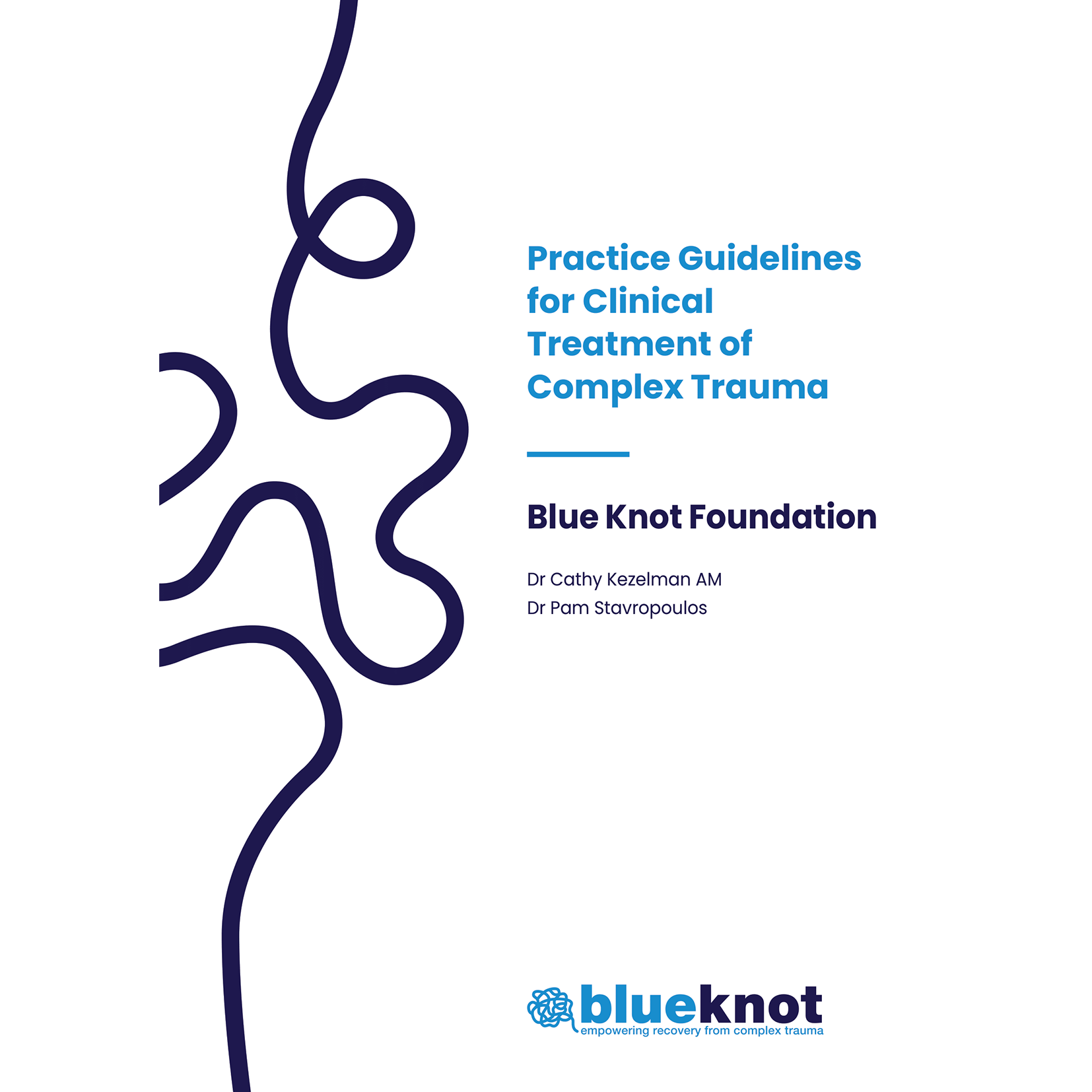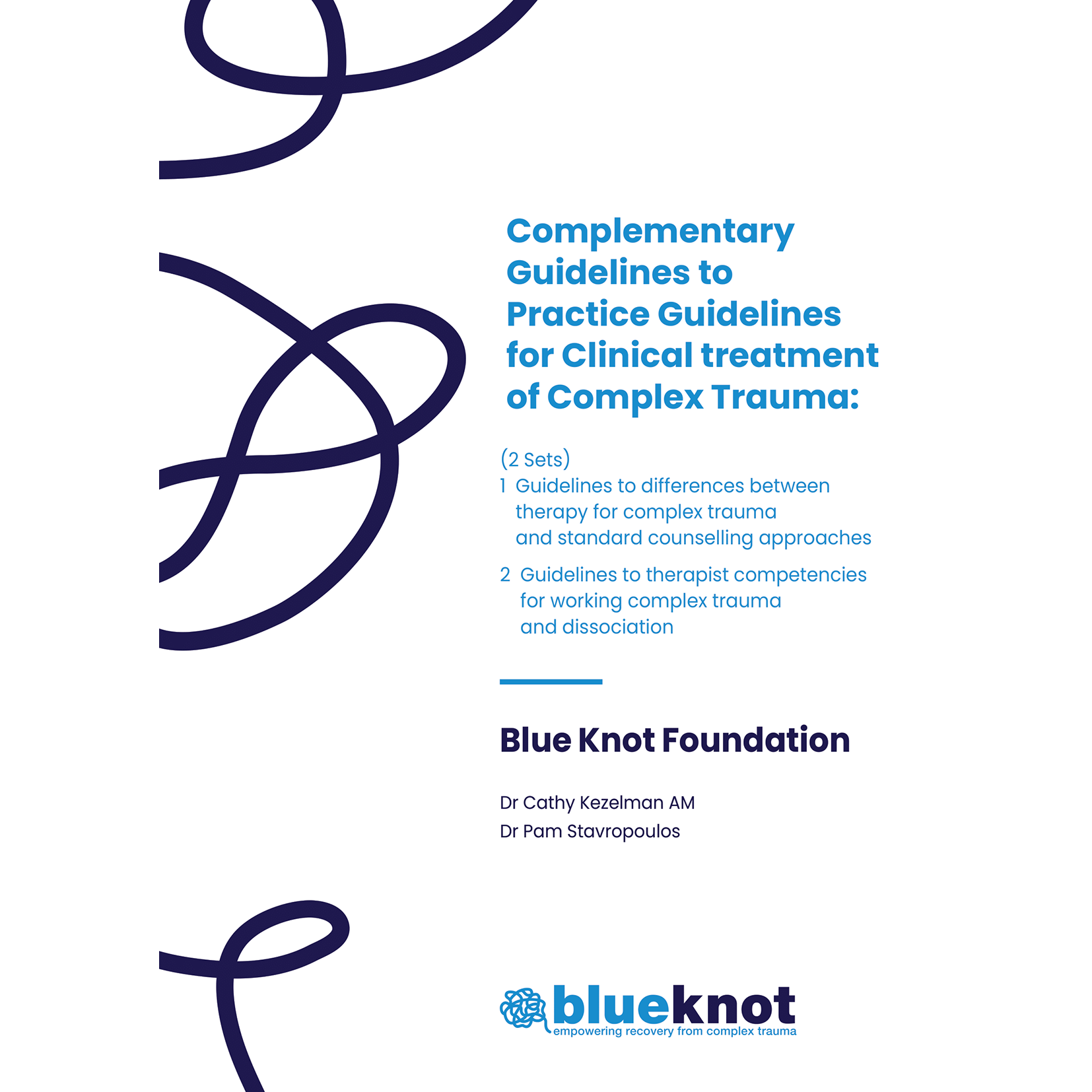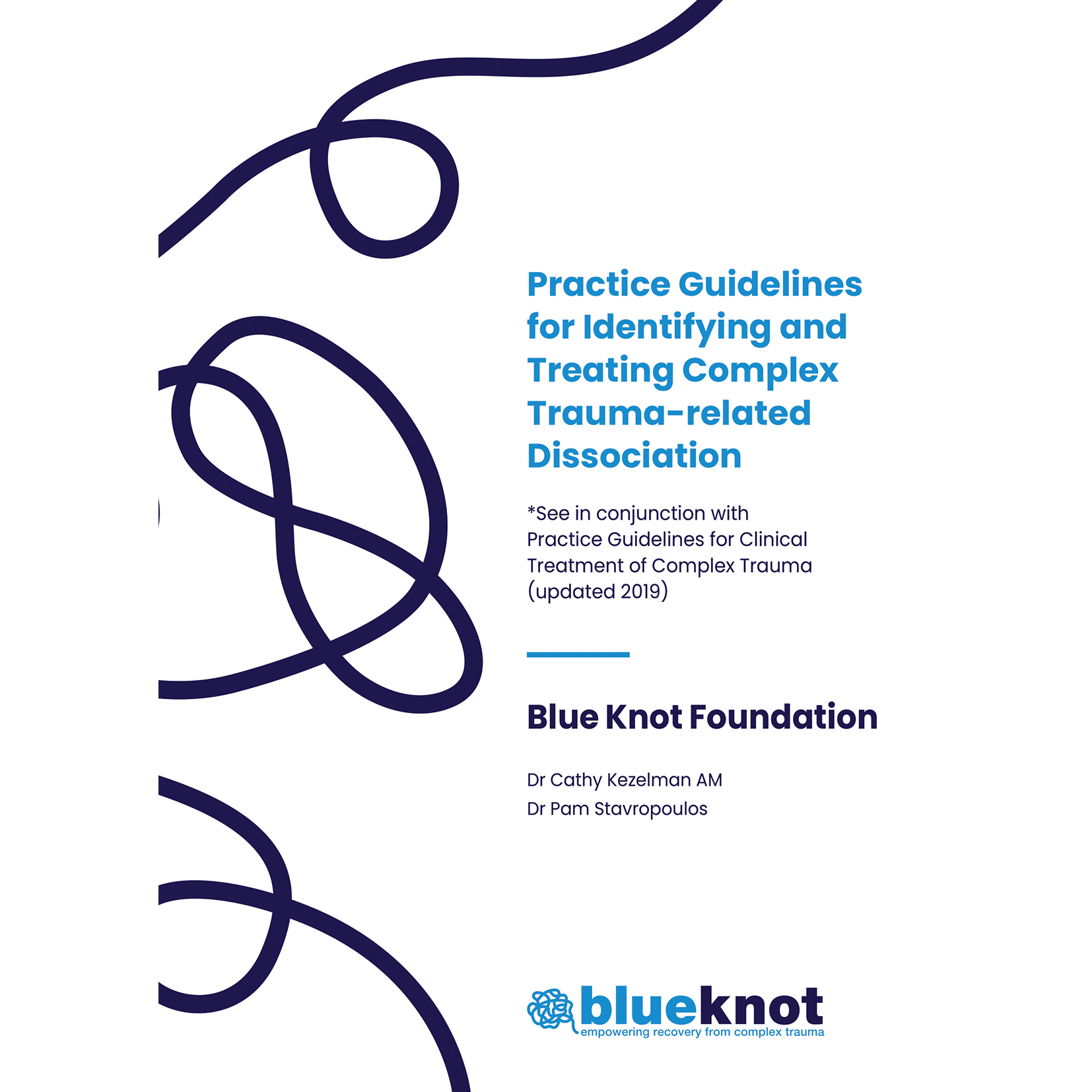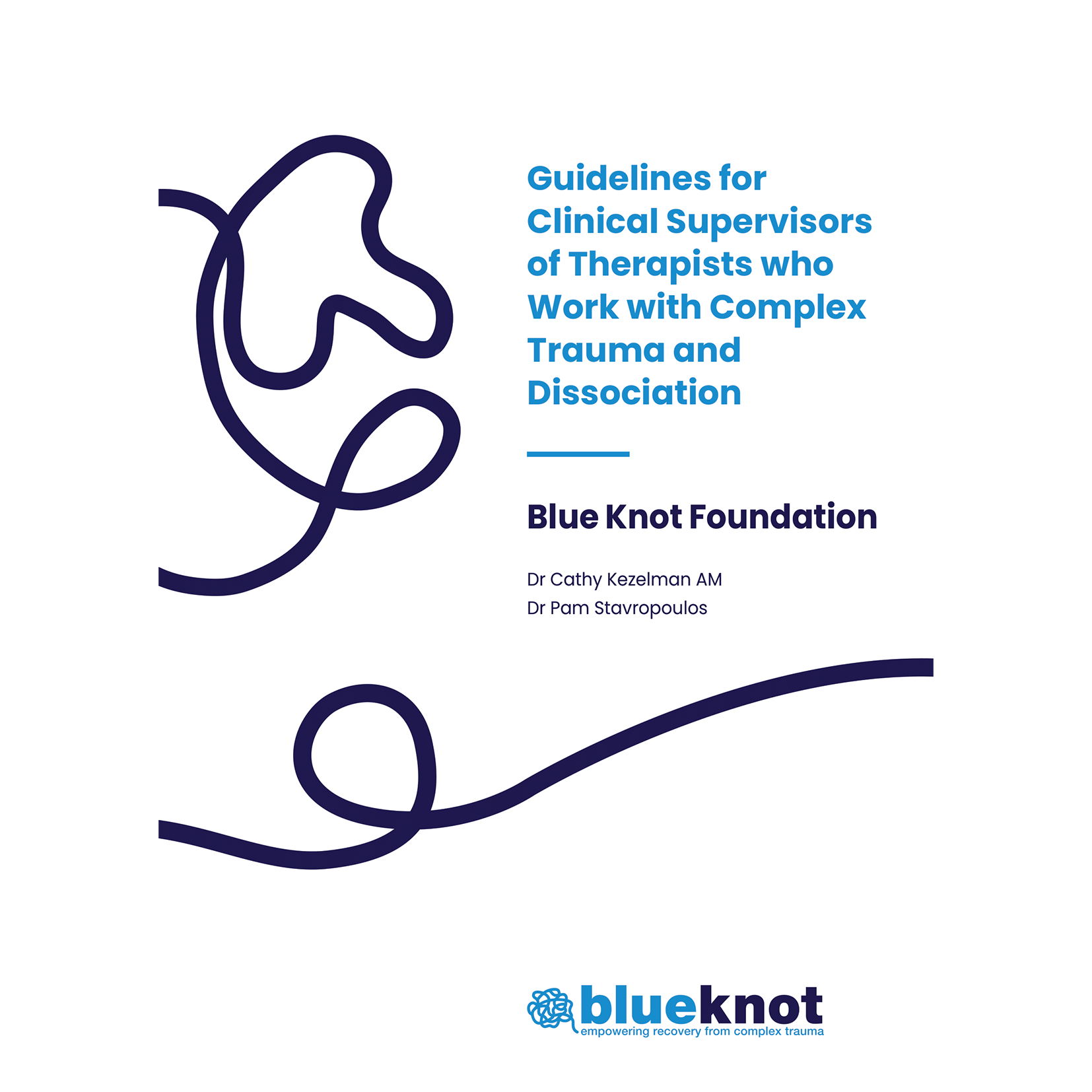These 2019 updated Clinical Practice Guidelines present evolving research and clinical insights around complex trauma. They build on the 2012 Practice Guidelines for Treatment of Complex Trauma and Trauma Informed Care and Service Delivery and include substantial additions around the nature of complex trauma, dissociation and the related clinical challenges, phased therapy, ‘new’ and emerging treatment approaches and issues relating to `evidence-based’ treatment. As happened in 2012, again in 2019, and prior to publication, Blue Knot’s updated Practice Guidelines have been extensively nationally and internationally endorsed.
Clinical Guidelines

Practice Guidelines for Clinical Treatment of Complex Trauma
If you would like to either purchase a hard copy of the publication or download a copy, please click the button below to visit the shop on the main Blue Knot community site.
Digital Download of Practice Guidelines for Clinical Treatment of Complex TraumaBuy Publication of Practice Guidelines for Clinical Treatment of Complex Trauma
Complementary Guidelines to Practice Guidelines for Clinical Treatment of Complex Trauma
Increasing numbers of therapists and health professionals from a range of disciplines are providing therapy to clients with complex trauma histories. These Complementary Guidelines complement and support the Practice Guidelines for Clinical Treatment of Complex Trauma (2019) by specifying what working with complex trauma clients requires and the relevant competencies needed by practitioners to do the work. The two sets of guidelines included in this publication address the ways in which working with complex trauma clients require adaptation of common counselling principles as well the competencies therapists ideally acquire for doing this work.
If you would like to either purchase a hard copy of the publication or download a copy, please click the button below to visit the shop on the main Blue Knot community site.
Digital Download of Complementary Guidelines to Practice Guidelines for Clinical Treatment of Complex TraumaBuy Publication of Complementary Guidelines to Practice Guidelines for Clinical Treatment of Complex Trauma
Practice Guidelines for Identifying and Treating Complex Trauma-related Dissociation
Complex trauma-related dissociation underlies diverse presentations to health professionals and is often not detected. This means that many people with complex trauma experiences, and who dissociate as a result, do not receive appropriate responses and care. These guidelines are for clinicians who work in a range of roles, come from different disciplines and have received diverse training but who want to enhance their ability to recognise and work with people experiencing complex trauma-related dissociation. These guidelines include information about working across the whole continuum of dissociation including with Dissociative Identity Disorder.
If you would like to either purchase a hard copy of the publication or download a copy, please click the button below to visit the shop on the main Blue Knot community site.
Digital Download of Practice Guidelines for Identifying and Treating Complex Trauma-related DissociationBuy Publication of Practice Guidelines for Identifying and Treating Complex Trauma-related Dissociation
Guidelines for Clinical Supervisors of Therapists who Work with Complex Trauma and Dissociation
These clinical supervision guidelines support clinical supervisors of therapists working with complex trauma and dissociative clients to enhance their professional and ethical practice. The pace of clinical and research insights relating to complex trauma is such that even clinical supervisors conversant with the field can find it hard to keep up. Clinical supervisors who are less aware of the many faces of complex trauma and dissociation, and who are otherwise competent and experienced in supporting their clinical supervisees, will find the guidelines helpful as well.





